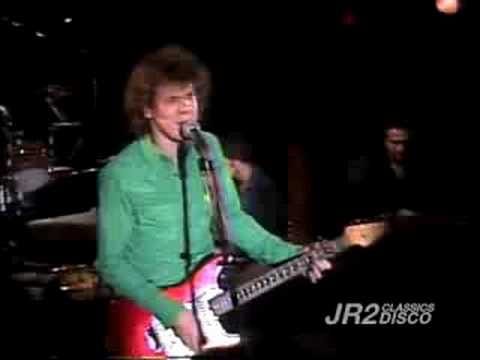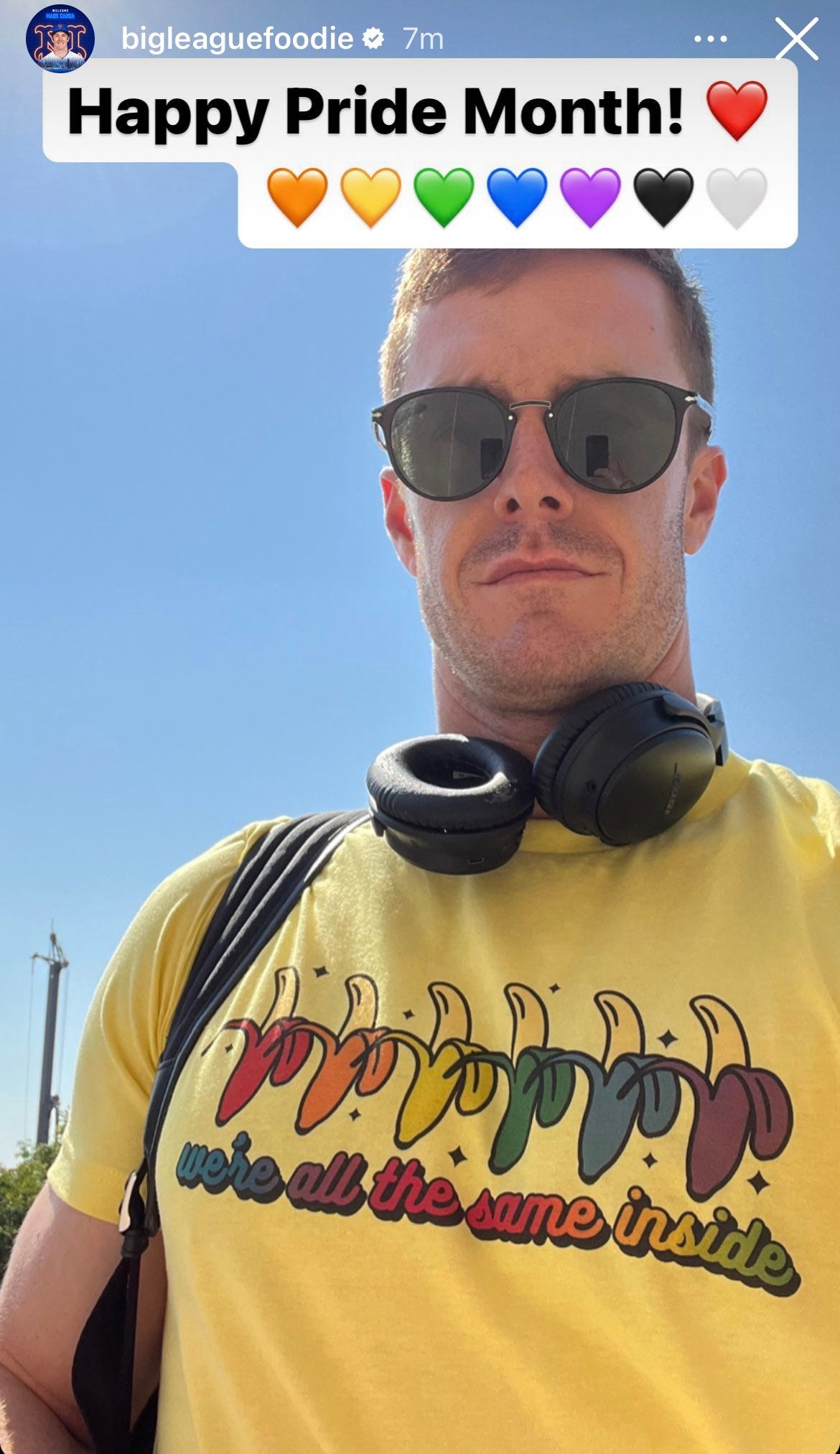Romeo’s Tune
I’m not quite sure how best to phrase this, but occasionally a song comes along that is so good that the first time you hear it you almost feel as if you’ve known it for your entire life. A perfect example of that idea is Seven Nation Army. That famous riff sounds like something that should have already been around forever, which is a major reason why it immediately became a standard. That’s also the case with Romeo’s Tune.
The piano hook immediately turns into your classic earworm. Can you remember the first time you ever heard it? Didn’t it already feel familiar without being derivative? This was Steve Forbert’s one and only big commercial splash; I hate to classify him as a one-hit wonder because he remained a steadily busy live performer long after this one hit. I clearly remember frequently reading about him in music magazines well before this hit big; I don’t remember if he was specifically classified as the latest of many New Dylans, but there was a Next Big Thing vibe surrounding him. It didn’t happen beyond this one moment, but what a moment it was. Decades later it remains a “turn up the volume when you hear it” selection.
Few Allies In MLB
I don’t think I’m exaggerating when I say that this is the most crucial Pride Month in memory. The blowback against the LGBTQ community for simply asking for the right to exist has been significant and depressing. There are a frightening number of people who don’t even pretend to hide their belief that gay people have no right to even exist. It leads me to believe that the previous President wasn’t being entirely sincere when he promised that he would be the best friend the community has ever had.
It’s been particularly disturbing to see the response to basic corporate friendliness. Events as simple as adding some rainbow themed merchandise on store shelves has been met with ugly responses, including physical threats against store employees. The irony of course is that the same crowd that constantly rails against so-called cancel culture never hesitates to call for boycotts against companies that the cultural warriors have an issue with.
Which brings us to MLB. 29 of the 30 franchises have scheduled some type of Pride celebration this month. (The sole holdout are the Texas Rangers.) Nothing unusual about that. Most, if not all, teams schedule multiple special events throughout the season in which they celebrate different communities. It makes good business sense, and it sends the message that all are welcome. And players gladly participate in the festivities. Except in one instance.
Months after several NHL players refused to wear special jerseys in their team’s Pride celebrations, we have seen several MLB players unabashedly spreading their homophobia. Now, some of them attempt to excuse their bigotry by hiding behind religion, but I’m not buying it. Bigotry under the coke of religion is still bigotry. A basic tenet of religion is love towards all. Furthermore, any player taking this stand is essentially telling roughly 8% of the population that he doesn’t want you as a fan. It’s no wonder that we still have yet to see an active MLB player come out. But population percentages make it a near certainty that each one of these homophobic players has had multiple gay teammates. He also must have several loved ones and/or family members that are gay. How could these men fail to understand that basic fact?
One of the most vocal homophobes this week has been Toronto relief pitcher Anthony Bass. With that in mind it was inspiring to see that his home fans greeted him with boos as he entered the game on Wednesday night, with a rainbow lit CN Tower serving as a visual backdrop. It takes little effort to show solidarity; more players need to act like Mark Canha or Julio Rodriguez.
Barry Bonds
Consider me intrigued. I’m not being hyperbolic when I say that Barry Bonds could almost be a Shakespearean character, with hubris acting as his downfall. We’ll have to see just how active a participant he will actually be in this project, and one can only hope this won’t turn out to be a hagiography, but if done right this could be a fascinating watch.
I’m old enough to have seen both Henry Aaron and Willie Mays play (in person!) but in both cases they were near the ends of their careers so I didn’t see either at their best. So, at least until Mike Trout came along, Bonds is the best player I have ever seen. Before his, um, physical transformation, he was the toolsiest of all five tool players, combining elite power with elite speed as well as being arguably the premiere defensive left fielder in the game.
He also had a preternatural talent for self sabotage, presenting a particularly unpleasant public persona. Contrast that with his rival for best player in the game, Ken Griffey Jr. Griffey was much easier to embrace, with one of the most aesthetically pleasing swings and he carried himself with a pure joy to his game that brought back images of Willie Mays. The few times in which Bonds would let his guard down and reveal a bit more of himself, he proved to be a smart guy with keen insight but he actively chose to rarely let people see that side of him.
Allegations of PED usage destroyed both his reputation and his chances at reaching the Hall of Fame. His pursuit of Aaron’s home run record was a particularly joyless affair, although it did serve the purpose of reminding everyone just how great a player and man Aaron was. But in retirement he proved the old adage that the people you meet on the way up are the same people you meet on the way done. Fans in San Francisco still love him, but he’s essentially become a man without a country as far as the overall sport is concerned.
I don’t know what types of regrets, if any, he has these days. Does he wish he been a more inviting personality in his playing days? Does he believe whatever substances he took were worth the cost? More importantly, will he discuss these feelings in the documentary? It should be fascinating to see.
It Was All A Dream
The talk about series finales a couple of days ago spurred me to think about the final episode of St. Elsewhere a bit further. 35 years after it initially aired, it remains one of the more eye-popping moments in TV history. At the time I had a bit of a “now it all makes sense” feeling. I don’t know how far ahead of time the creatives planned that ending. If it was plotted out relatively early in the show’s run, that’s some pretty impressive long range planning. If they came up with it near the end, that’s some pretty impressive retconning.
The show premiered on NBC in 1982, and although they never aired on the same evening, it could be looked at as a companion piece to Hill Street Blues with its large ensemble cast in a setting in which the characters faced eternal uphill climbs. While it wasn’t as gritty & grimy as Hill Street, it still had the similar feeling that the overall situation was a house of cards that could tumble at any time. The show’s title came from the fact that the show’s hospital, St. Eligius, had the nickname of St. Elsewhere because that’s where a patient would wind up when they were unable to get admitted into any of Boston’s more prestigious hospitals.
The show was meta long before the term was popularized. It was often self referential, to the point where its low ratings occasionally became a plot point. Seasons would end with characters worried that budget cuts might force the hospital to shut down. In a similar vein over the course of its 6 season run it always seemed to be hanging by a thread. It was helped by the fact that in its earliest seasons NBC was the traditional last place network. They couldn’t cancel everything, so St. Elsewhere’s prestige helped it survive. Then, once The Cosby Show moved NBC into first place, the network treated the show as a loss leader. The ratings still weren’t great, but the industry honors made it worth keeping and the network was so swimming in cash that they could afford a soft spot in the schedule.
I haven’t rewatched an episode in ages, so I don’t know how well it holds up, but it shares a lot in common with many shows in the current Prestige TV era. There were many memorable characters, and plenty of talented actors. (Whatever happened to that guy who portrayed Phil Chandler? I don’t recall every seeing him on another TV show, I hope he turned out alright.) As good as the show was, it sometimes had a tendency to go over the top which often served to reduce its realism.
Which is what made the ending more effective. What many people may not remember is that the finale actually had 3 endings. One of the running plots of the episode is that it was the final day of residency for the younger doctors introduced in the pilot. One such doctor was Howie Mandel’s Dr. Fiscus completing his last day as an ER resident. One of the patients was an opera singer who had lost her voice on opening night and throughout the hour she was seen floating in the background in full Viking costume with helmet. After Fiscus treated his last patient, he was unable to bring himself to leave, continually insisting on seeing one more patient even though his shift had ended. Finally one of the senior doctors told him to leave because his residency was over. Fiscus said “it ain’t over until the fat lady sings” and just then the opera singer patient was cured and hit her high note.
The second ending followed in which a patient woke up in his bed and we saw an unfamiliar doctor filling out a chart. The doctor introduced himself to the patient as a resident on his first day and then smugly told the patient how he would whip the hospital into shape. The cycle continues. And then the show cut to the well-known finale. We learn that the entire series had been a complete fantasy of the autistic son of Dr. Westfall. That revelation made some of the more absurd plot lines a lot less implausible.
A Less Spectacular Ending
No major shocks here; I’m simply wrapping up today’s edition. As I get ready to go to my college reunion this weekend, a sincere thanks to everyone for reading. Have a great weekend, and I’ll see you all again on Monday.







Steve! Jack rabbit slim is just about my favorite album evah. And you are spot on about the feeling that Romeo’s Tune provokes. Thanks!